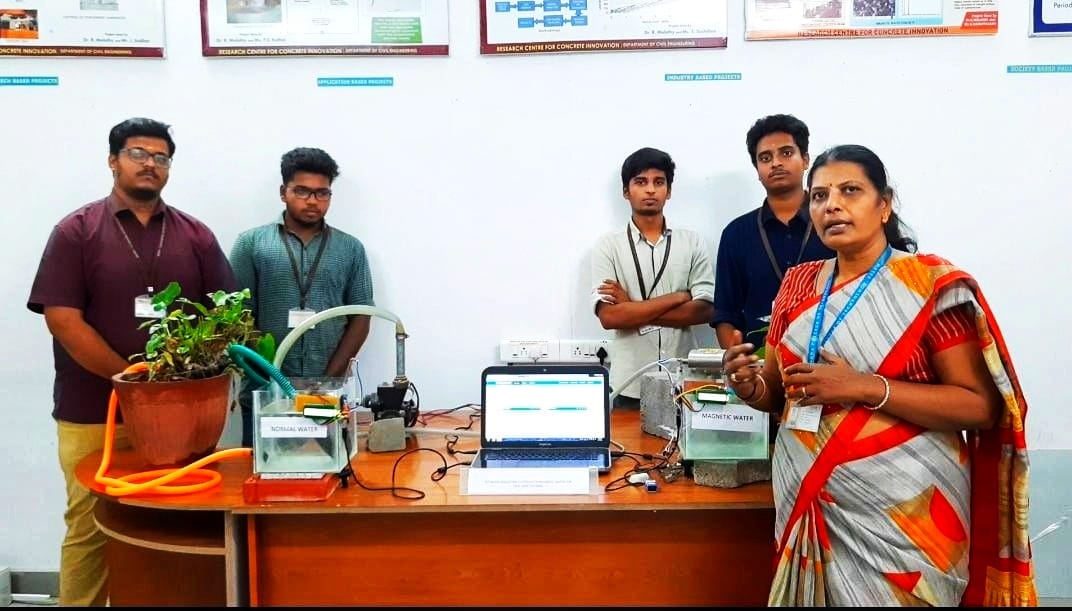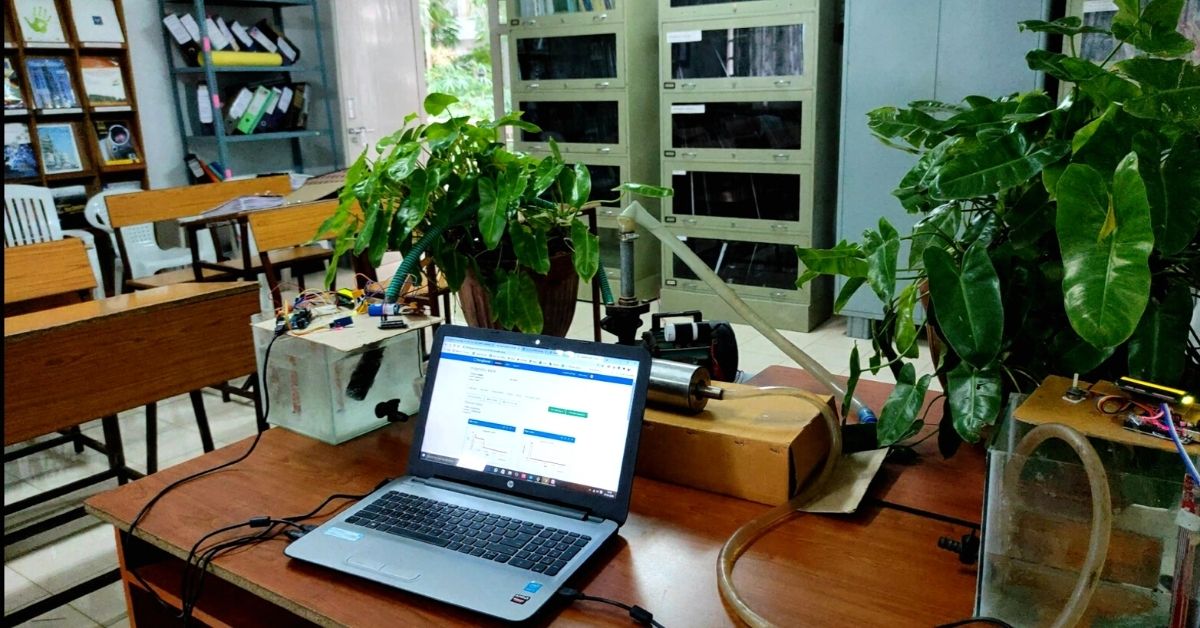Tamil Nadu Students’ Magnetic Solution Turns Hard Water Soft, Increases Crop Yield
Engineering students of Sona College of Technology in Tamil Nadu's Salem have come up with an innovative technology that make hard water soft and optimises the mineral content in plants while saving 30% water used in irrigation

Farmers in India mainly depend on rainwater, and sometimes purely on groundwater, for their agriculture activities. Sadly, this essential resource is becoming scarce. Not only are the rains erratic, but their shortfall increases the dependency on borewells with each year.
In a double blow, not only is the groundwater depleting, but it also contains hard minerals and even high levels of salinity which can have adverse effects on the growth of crops. In some cases, plants also consume more water than required, also hardening the soil with salt deposits in the process.
But, a group of engineering students may have a magnetic solution to the problem, that also reduces water requirement by 30 per cent.
As it turns out, passing water through a magnetic field can help alter its properties enough to enhance its quality and the mineral-absorbing capacities of the plant. So students from Sona College of Technology in Tamil Nadu have conceived an IoT system that can magnetise the water to various capacities, reducing the need for water and increasing crop yields without fertilisers.
Breaking down the hard water

“A majority of the farmers depend on groundwater for agriculture activities across the country. The move has negative effects. But if the water is magnetised, the molecular structure and properties can be altered to break down the minerals and make it easy for plants to absorb them,” said Manimozhi Selvan, one of the students working on the system.
Manimozhi said that water molecules have minerals bonded with it. The large size of these minerals may make them difficult for plants to absorb. But magnetising the water molecule breaks the structure and forms it into a smaller hexagonal structure.
The restructured molecular water makes it easy for absorption by plants, and the breaking down process eliminates hard elements like magnesium and chloride. “Minerals like iron, potassium, and nitrogen also get added during the alteration, thus improving the quality of water,” Manimozhi explained.
The student said the change in properties of water during the process also enhances permeability in soil.
Increase yield and save water
“The reduced salts increase the germination capacity of the soil, thus more plants per pod. The method eventually reduces the water requirement of plants and increases the yield,” he added.
The method was applied to paddy, flower plants and a lawn where one area got irrigated with treated water while the other had borewell water. “The results showed positive results in the magnetised water,” the student said.
Explaining the result, the student said that over a three-day water cycle, the water required through the magnetic process consumed 800 litres of water. In comparison, the untreated groundwater requirement consumed 1,200 litres.
Technology for optimum yield
https://drive.google.com/file/d/173OlDTz60qvyEQb9pGB_1_-En6tepRAF/view
Going a step ahead in the process, the students introduced IoT technology, optimising the mineral content in the water as per the need of the crops.
R Malathy, a professor in the civil engineering department, said, “The method is already in use for curing cement during construction, to increase the strength. The literature we studied suggested the process could help improve the quality of water for agriculture.”
Malathy said the students used Permag Neodymium (N406, a rare earth material) with a specific strength to treat the water. “The novel technology helps us know the mineral levels in the water before and after the process. The evidence was not present before,” she added.
The professor said that knowing the properties of minerals and its content in water allows the magnetic power to be increased or decreased. It also gives an idea about the time that the water needs to be exposed to the field.
“Having control over these things and knowing the mineral content in the soil, the water quality can be optimised. Every crop like sugarcane, paddy, tomato requires a different proportion of minerals from water. Hence, the proportion of nutrients can get controlled depending on the cultivation,” Malathy told The Better India.
Malathy said the nutrients received from the water eliminates the need to use fertilisers, making it environment friendly.
The project also won an award at Smart India Hackathon 2020. The team is now working to develop a device for large scale plantations.
“The device is cylindrical to be put around the water pipe. The smartphone application can help to control the parameters,” Malathy said. The components in the device last for at least ten years at a zero maintenance cost.
A few farmers have started using the technology, and the team is currently working on plants like corn, paddy and turmeric to see the effects.
(Edited by Vinayak Hegde)
If you found our stories insightful, informative, or even just enjoyable, we invite you to consider making a voluntary payment to support the work we do at The Better India. Your contribution helps us continue producing quality content that educates, inspires, and drives positive change.
Choose one of the payment options below for your contribution-
By paying for the stories you value, you directly contribute to sustaining our efforts focused on making a difference in the world. Together, let’s ensure that impactful stories continue to be told and shared, enriching lives and communities alike.
Thank you for your support. Here are some frequently asked questions you might find helpful to know why you are contributing?


This story made me
-
97
-
121
-
89
-
167













